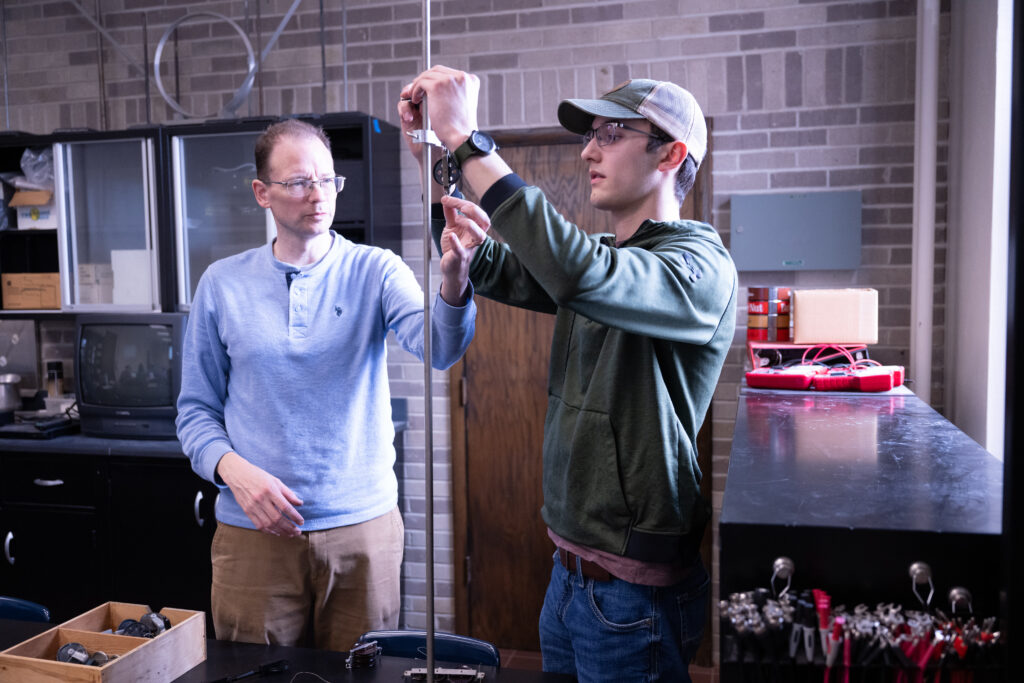The mission of University of Northwestern – St. Paul (UNW) engineering program is to prepare graduates to be leaders who can coordinate a multidisciplinary team to research, design, and implement solutions. Students are taught to consider standard procedures, ethical practices, current technologies, and the impact on creation. The program aims to equip students for God-honoring service to the profession, community, and world.
Simply stated, engineers work together to create solutions for real-world challenges. And at Northwestern, the solutions are God-honoring, considering standards, ethics, and effects on community. Whatever the challenge, graduates are the resources for meeting these needs.
To ensure capable graduates, engineering courses, laboratories, faculty, and quality assurance operations are regularly reviewed to meet the criteria of Engineering Accreditation Commission (EAC) of ABET. Specifically, the EAC arranges for engineering society professionals to visit, evaluate, and recommend improvements to maintain accreditation, which is necessary for a graduate to become a state licensed professional engineer (PE). This process ensures graduates meet the fundamental cognitive and skill requirements for a successful engineer.
In the 1960s, Earl Bakken collaborated with University of Minnesota to create the first portable pacemaker and established the company Medtronic, which produces most of the world’s cardio-assistive devices, today. This innovation has spread throughout the Twin Cities and Rochester to become a biotech hub for creating healthcare solutions in the world. To enhance support of this vital Minnesota healthcare industry, an Industrial Advisory Board, consisting of engineering managers, advises with educational objectives, skills required to meet current needs, and technology to ensure graduate relevance. These managers and the newly established Northwestern Center for Innovation and Research (NCIR) coordinate industry-based internships, research, and development projects to better ensure graduates have relevant skills and practical abilities for industry.
The Northwestern strategic vision is based on Jeremiah 29:4-7, which includes the directive to seek the welfare of the city where I have sent you. For many engineering graduates, this means Minnesotan cities and industries. As such, UNW engineering alumni are involved in road construction, manufacturing, building services (power, heating, air conditioning, and ventilation), and especially the biomedical technology industry.
One of the initiatives of the Northwestern Amplify the Gospel Vision includes a focus on Biomedical Technology: Northwestern’s engineering and science and technology programs will invest strategically to fill an industry gap by preparing ethical and virtuous leaders who are educated and equipped to solve healthcare problems in the world through biomedical technology. Therefore, UNW engineering, computer science, biology, biochemistry, and business administration students are learning entrepreneurship, innovation, and out-of-the-box thinking in combination with the Christian liberal arts essentials of problem solving, critical thinking, spiritual formation, and moral leadership, as detailed in the initiative.
The goal is to add faculty, develop integrated biomedical technology laboratories, and provide innovative design spaces to enhance learning, further equipping students to be the salt and light as they improve the health and wholeness of our world.
Interested in learning more? We would love for you to join us.


